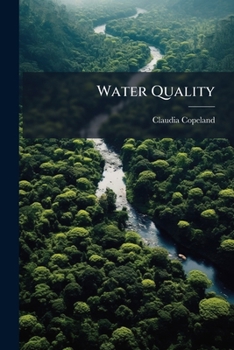Water Quality
Congress enacted the most recent major amendments to the Clean Water Act in 1987 (P.L. 100-4). Since then, the Environmental Protection Agency (EPA), states, and others have been working to implement the many program changes and additions mandated in the law. At issue today - more than 30 years after enactment of the core law - is what progress is being made to achieve its goals. In general, states and environmental groups fault EPA for delays in issuing guidance and providing assistance to carry out the law. EPA and others are critical of states, in turn, for not reaching beyond conventional knowledge and approaches to address their water quality problems. Environmental advocates have been criticized for insufficient recognition of EPA's and states' need for flexibility to implement the act. Finally, Congress has been criticized for not providing adequate resources to meet EPA and state needs. Appropriations for clean water programs, especially water infrastructure, are a continuing issue.
This work has been selected by scholars as being culturally important, and is part of the knowledge base of civilization as we know it. This work was reproduced from the original artifact, and remains as true to the original work as possible. Therefore, you will see the original copyright references, library stamps (as most of these works have been housed in our most important libraries around the world), and other notations in the work.
This work is in the public domain in the United States of America, and possibly other nations. Within the United States, you may freely copy and distribute this work, as no entity (individual or corporate) has a copyright on the body of the work.
As a reproduction of a historical artifact, this work may contain missing or blurred pages, poor pictures, errant marks, etc. Scholars believe, and we concur, that this work is important enough to be preserved, reproduced, and made generally available to the public. We appreciate your support of the preservation process, and thank you for being an important part of keeping this knowledge alive and relevant.





